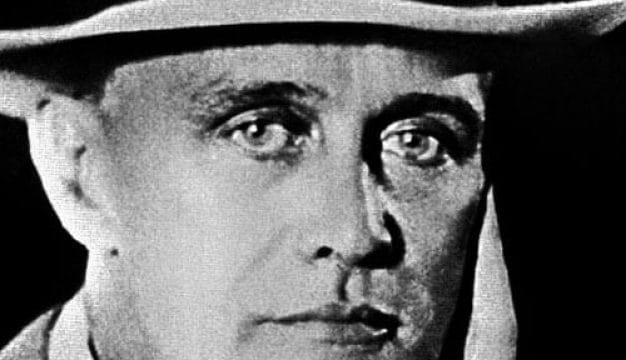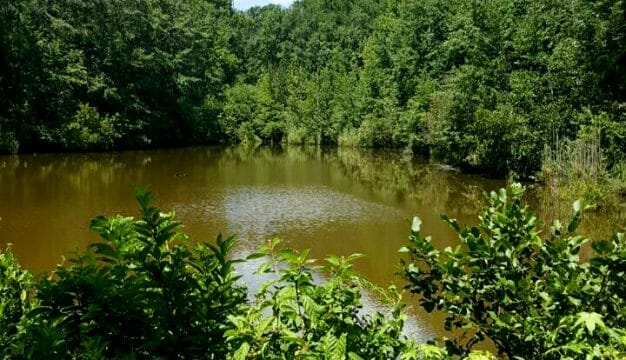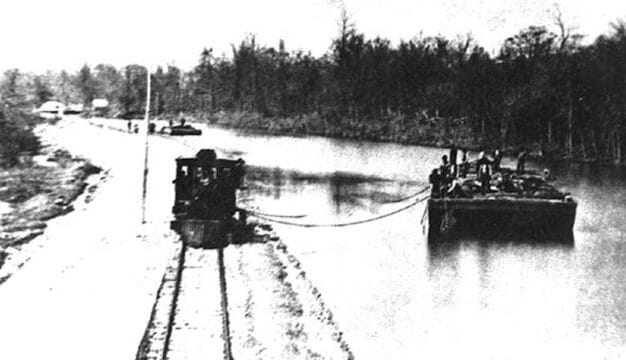Southeastern Bible College
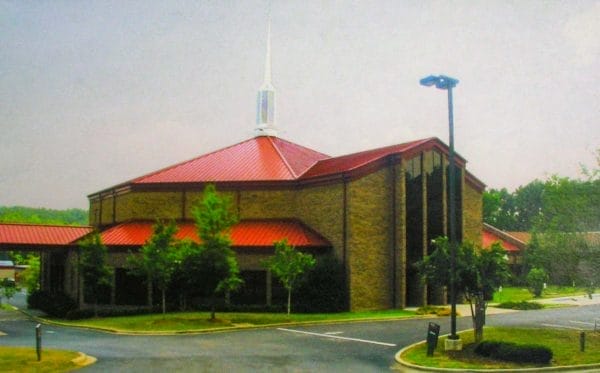 Southeastern Bible College Building
Southeastern Bible College (SBC) was a four-year, nondenominational, evangelical institution located just south of Birmingham. SBC was organized in 1933 under the influences of northern fundamentalists as a coeducational training school for students in various forms of Christian ministry and began classes in October 1934. SBC served mainline Baptist and Presbyterian congregations, but it eventually spawned numerous independent churches throughout Alabama. In addition to its continuing influence among Baptists and, to a lesser extent after the 1940s, among Presbyterians, SBC (along with Dallas Theological Seminary in Dallas, Texas) serves as the organizational center of nondenominational fundamentalism in Alabama and provides theological leadership and ministerial staff to the independent churches founded by graduates of these institutions.
Southeastern Bible College Building
Southeastern Bible College (SBC) was a four-year, nondenominational, evangelical institution located just south of Birmingham. SBC was organized in 1933 under the influences of northern fundamentalists as a coeducational training school for students in various forms of Christian ministry and began classes in October 1934. SBC served mainline Baptist and Presbyterian congregations, but it eventually spawned numerous independent churches throughout Alabama. In addition to its continuing influence among Baptists and, to a lesser extent after the 1940s, among Presbyterians, SBC (along with Dallas Theological Seminary in Dallas, Texas) serves as the organizational center of nondenominational fundamentalism in Alabama and provides theological leadership and ministerial staff to the independent churches founded by graduates of these institutions.
In 1927, Southern Baptist layman Edgar J. Rowe, his wife Bessie, and a few of their friends attended a Bible conference at Birmingham’s First Presbyterian Church to hear the well-known, fundamentalist Bible teacher Harry A. Ironside from the Moody Bible Institute in Chicago, Illinois. Inspired and encouraged by Ironside to launch a Bible institute in Birmingham, Rowe investigated the structure, methods of operation, and curricula of existing schools. In 1933 he wrote a prospectus and presented it to approximately 30 local pastors and laymen. Rowe gained their support to establish a Bible institute to train laypersons, especially Sunday school teachers, for ministry in their local churches. The group created an executive committee consisting of Judge Henry L. Anderton (a deacon and the Sunday school superintendent at West End Baptist Church), Dr. W. T. Berry (a physician and a deacon in Birmingham’s First Baptist Church), Wick Broomall Jr. (pastor of Handley Memorial Presbyterian Church), and three businessmen—Rowe, C. E. Gibbs, and Walter R. Heasty. The executive committee established an interdenominational board of directors consisting of six local pastors and 11 men from Birmingham’s professional and business community. Christened the Birmingham School of the Bible, the institute opened in October 1934 with an interdenominational faculty drawn from local pastors and led by Wick Broomall Jr. Its historical development followed a well-marked path already travelled by older northern Bible institutes, which also began as evening institutes for training laypersons and evolved into day-schools dedicated to providing vocational training for people wishing to enter full-time Christian service.
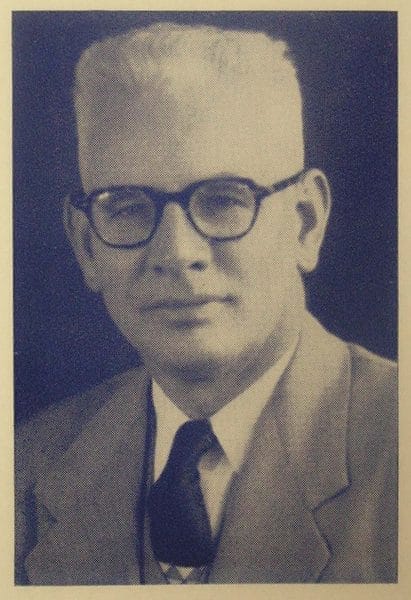 Wick Broomall
Like its sister institutions in the South, Southeastern modeled its institutional form after Moody Bible Institute and took its theological direction from Dallas Theological Seminary, both of which were important institutions within the northern fundamentalist movement. Like Moody, the Birmingham school emphasized English-language Bible study, offering courses with titles such as Bible Introduction, Bible Study Methods, Bible Geography, and Bible Doctrine, as well as expository lectures that provided surveys of individual Bible books. Additionally, students took courses that offered practical training, including personal evangelism, missiology, and pedagogy. The curriculum also required Christian service activities such as handing out tracts and Bibles, teaching home Bible studies and Sunday school classes, and sharing personal testimonies in jails and city rescue missions.
Wick Broomall
Like its sister institutions in the South, Southeastern modeled its institutional form after Moody Bible Institute and took its theological direction from Dallas Theological Seminary, both of which were important institutions within the northern fundamentalist movement. Like Moody, the Birmingham school emphasized English-language Bible study, offering courses with titles such as Bible Introduction, Bible Study Methods, Bible Geography, and Bible Doctrine, as well as expository lectures that provided surveys of individual Bible books. Additionally, students took courses that offered practical training, including personal evangelism, missiology, and pedagogy. The curriculum also required Christian service activities such as handing out tracts and Bibles, teaching home Bible studies and Sunday school classes, and sharing personal testimonies in jails and city rescue missions.
Southeastern’s initial administrator, Wick Broomall Jr., many of his successors, and most of the school’s faculty were graduates of Dallas Theological Seminary and decisively rooted their Alabama students in that seminary’s dispensational premillennialism. Following the teaching of Cyrus I. Scofield, dispensationalists typically divided Bible history into seven periods or dispensations, with Christ’s return to Earth occurring prior to the future millennial kingdom, or the seventh dispensation. Faculty and students favored use of the highly influential Scofield Reference Bible. Administrators and faculty often used Scofield’s slogan, “Rightly dividing the Word of Truth,” to underscore the importance of maintaining strict separation of truths assigned each dispensation. They also emphasized Dallas Seminary’s theology of the spiritual life, explained in He That Is Spiritual, published by Lewis Sperry Chafer, the seminary’s founding president. Using Chafer’s book as a guide, faculty taught students that true spirituality demanded surrender of the will to God and openness to the Holy Spirit for empowerment and guidance. Faculty considered their students’ progress in spirituality more important than acquiring good grades. This point, as well as other important areas of theological emphasis, was underscored by speakers in mandatory daily chapel services and in annual Bible conferences, which usually featured prominent Bible teachers associated with the northern fundamentalist movement.
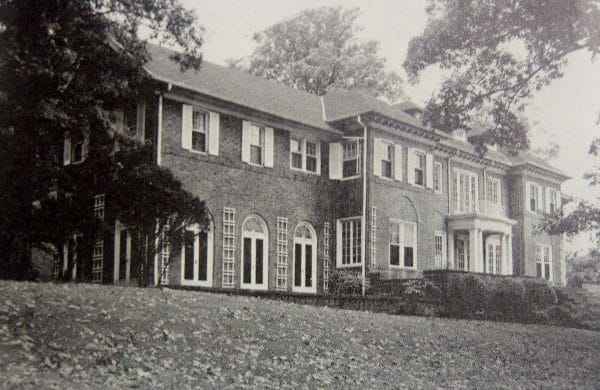 Southeastern Bible College Dormitory
During Broomall’s three-year tenure, the Birmingham School of the Bible held evening classes at the Alverson Business College. Faculty member Harold A. Cook, pastor of Porter Baptist Church, directed the evening institute following Broomall’s departure in 1937. In 1940 Rowe successfully instituted a three-year day-school program, which opened in 1941 under the direction of recent Dallas graduate William C. Bennett. In 1942 the institution was renamed Southeastern Bible School, a change promoted by Bennett. William S. Mooney, another Dallas graduate, succeeded Bennett as president in 1944 and served until mid-1945. Charles Seidenspinner, a graduate of Wheaton College, northern fundamentalism’s premier liberal arts school, accepted the presidency that September and provided energetic and effective leadership. When he departed in 1958, Southeastern employed 10 full-time and seven part-time faculty members; enrolled more than 500 students in its day and evening schools; purchased and occupied the nearby Frank Nelson Estate; opened numerous lay evening institutes in towns located as far north as Decatur and as far south as Montgomery; and received a legislative charter to grant degrees in June 1950.
Southeastern Bible College Dormitory
During Broomall’s three-year tenure, the Birmingham School of the Bible held evening classes at the Alverson Business College. Faculty member Harold A. Cook, pastor of Porter Baptist Church, directed the evening institute following Broomall’s departure in 1937. In 1940 Rowe successfully instituted a three-year day-school program, which opened in 1941 under the direction of recent Dallas graduate William C. Bennett. In 1942 the institution was renamed Southeastern Bible School, a change promoted by Bennett. William S. Mooney, another Dallas graduate, succeeded Bennett as president in 1944 and served until mid-1945. Charles Seidenspinner, a graduate of Wheaton College, northern fundamentalism’s premier liberal arts school, accepted the presidency that September and provided energetic and effective leadership. When he departed in 1958, Southeastern employed 10 full-time and seven part-time faculty members; enrolled more than 500 students in its day and evening schools; purchased and occupied the nearby Frank Nelson Estate; opened numerous lay evening institutes in towns located as far north as Decatur and as far south as Montgomery; and received a legislative charter to grant degrees in June 1950.
In June 1952 the school was renamed Southeastern Bible College. C. Sumner Wemp served as president between 1969 and 1972, but his fellow Dallas alumnus Alden A. Gannett, who served as president from 1960-69 and 1972-81, shaped the college’s fortunes during the 1960s and 1970s. In 1962 SBC earned national accreditation with the Accrediting Association of Bible Colleges and added new programs, including elementary education, to serve the emergent independent Christian K-12 school movement. Declining enrollments and decreasing budgets plagued the presidencies of James G. Kallam (1981-88) and John D. Talley Jr. (1988-2001), leading to SBC’s relocation in 1988 to a more easily maintained and visible campus on Highway 280 East in Mountain Brook. In 2001, the school began a slow but steady recovery under the leadership of its president, Don Hawkins, who orchestrated its 2004 relocation to newer and more functional facilities in the rapidly growing northern Shelby County. Southeastern’s fall 2005 total enrollment was 233.
In 2017, following several years of declining enrollment and financial hardships, suspended operations. Pres. Alexander Granados, who had taken the role in 2014, announced the closure of the school in June of that year. In September, he announced that the college would sell its campus and merge with Piedmont International University, based in Winston-Salem, North Carolina. Two other small evangelical schools, in Tennessee and North Carolina, merged into the larger institution as well at that time. In 2020, the school changed its name to Carolina University.
Further Reading
- Glass, William R. Strangers in Zion: Fundamentalists in the South, 1900–1950. Macon, Ga.: Mercer University Press, 2001.
- Waldrep, B. Dwain. “Fundamentalism, Interdenominationalism, and the Birmingham School of the Bible, 1927–1941.” The Alabama Review 49 (January 1996): 29–54.
- ———. “Lewis Sperry Chafer and the Development of Interdenominational Fundamentalism in the South, 1900–1950.” Ph.D. diss., Auburn University, 2001.

